The 2023 Ballard Brief Summit gave students an opportunity to present research conducted about social problems and win prize money for their efforts.
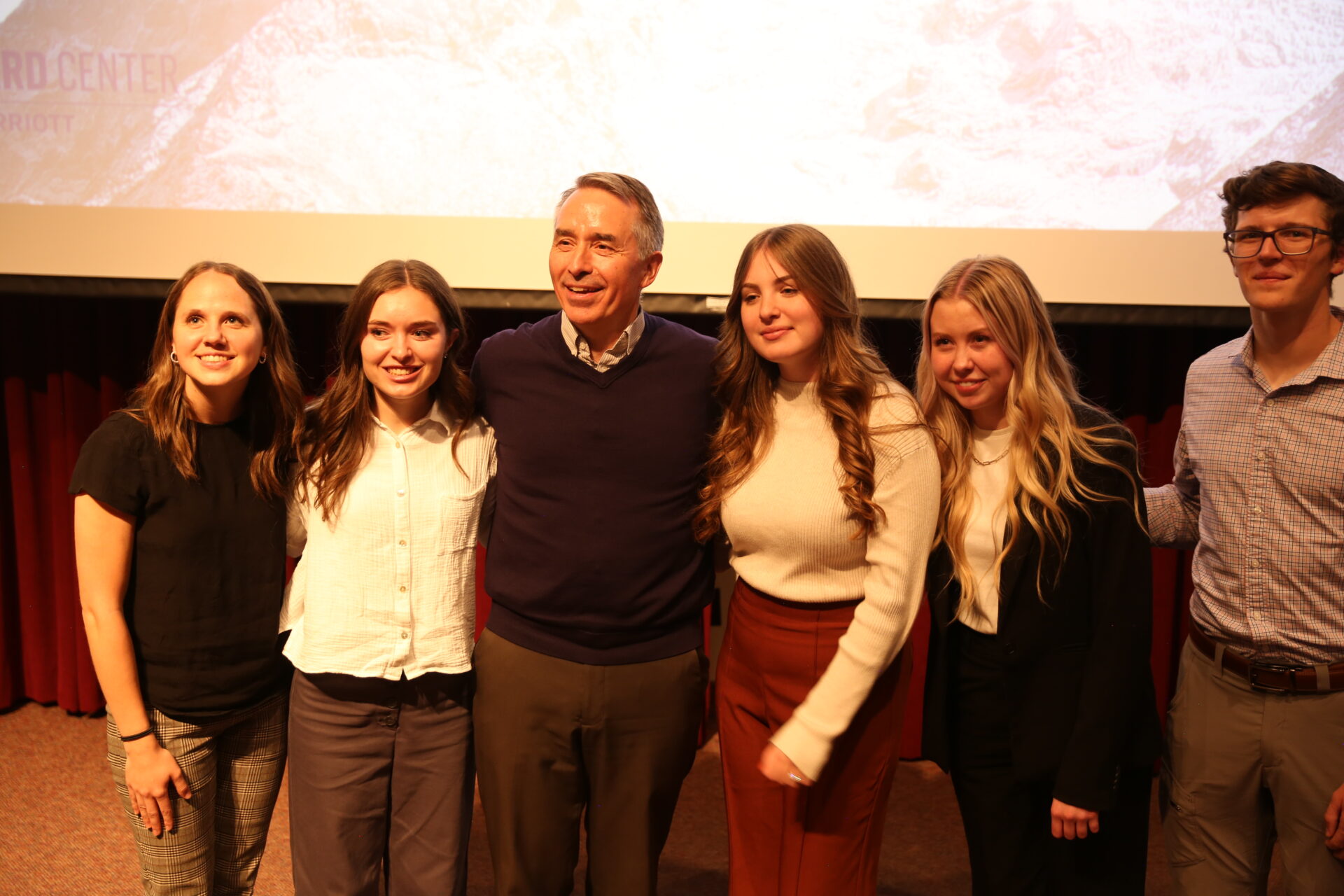
The BYU Ballard Center for Social Impact hosted the summit, which is based off of their “Ballard Brief” class — a 2.0 credit class where students spend the semester doing in-depth research on a social issue of their choice. Students typically spend between 200 and 300 hours on their Ballard Brief, according to the Ballard Center.
“It’s a really unique opportunity for students to be published as an undergrad, and we often get a lot of nonprofits and just other universities wanting to collaborate with these students on their research endeavors,” Kate Christensen, director of operations at the Ballard Center, said.
After the class, students auditioned for a chance to present their research to audience members and judges at the summit. Out of more than 40 published student authors from last year, five had the opportunity to participate.
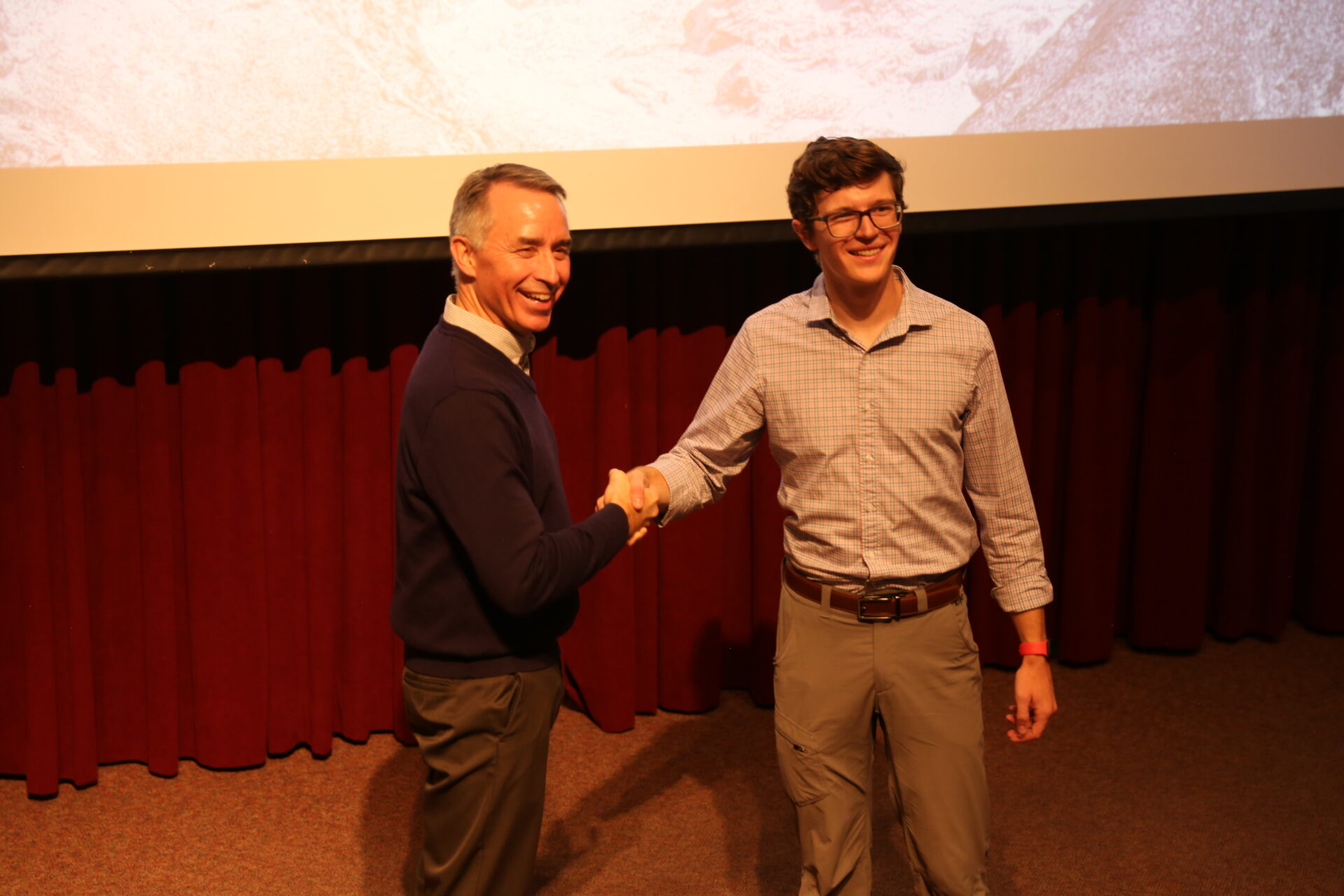
Nathan Thompson presented first about the impact of climate change in the U.S. Thompson spoke about the social damages that result from climate change, including increased anxiety and negative impacts on vulnerable populations.
To deal with climate change, Thompson suggested governments work on using more solar and wind power and said individuals can speak up and talk to their friends and family about climate change to raise awareness.
Hannah Chugg examined the history of the black/white homeownership gap and what economic and political factors contributed to the current gap. Consequences of the homeownership gap include financial repercussions for Black families and possible future repercussions for generations, according to Chugg.
Chugg explained that learning about the issues of inequality is the first step people can take to address this problem.
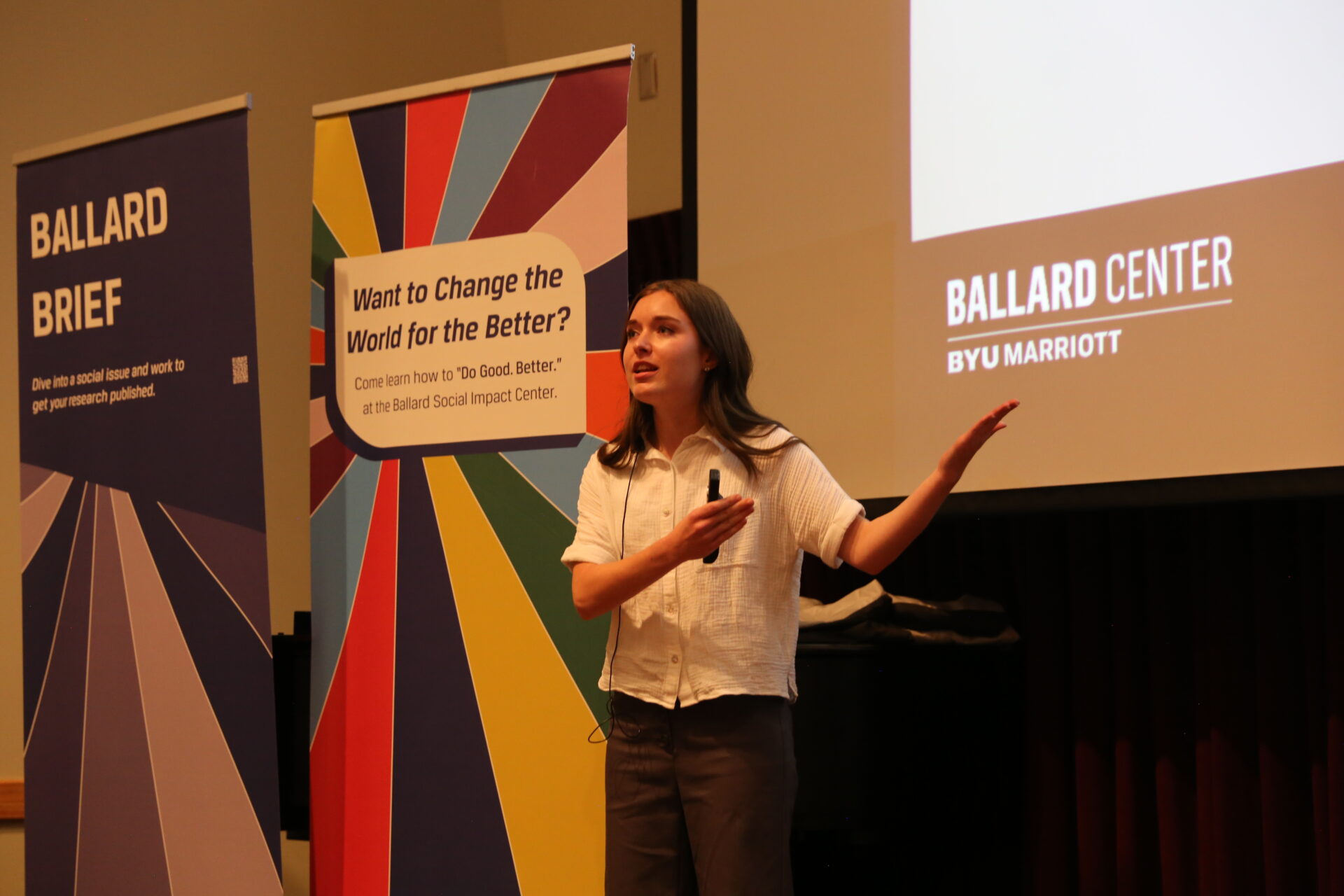
Alyssa Minor wrote her Ballard Brief on orphanages in Ghana, Africa, and her remarks included what she learned from traveling to Ghana this summer to do more research. Minor said children in Ghana often end up in orphanages even if they have living parents, and once in orphanages may end up in situations where they are beaten, starved, sexually abused or used for labor.
Minor urged audience members to focus their time and money on organizations that will empower and stabilize individuals and families.
Susan May Watts spoke about the rise of antisemitism in Germany. According to Watts, antisemitism did not disappear after the Holocaust, and the Israel-Palestine conflict and the COVID-19 pandemic have increased antisemitic attitudes.
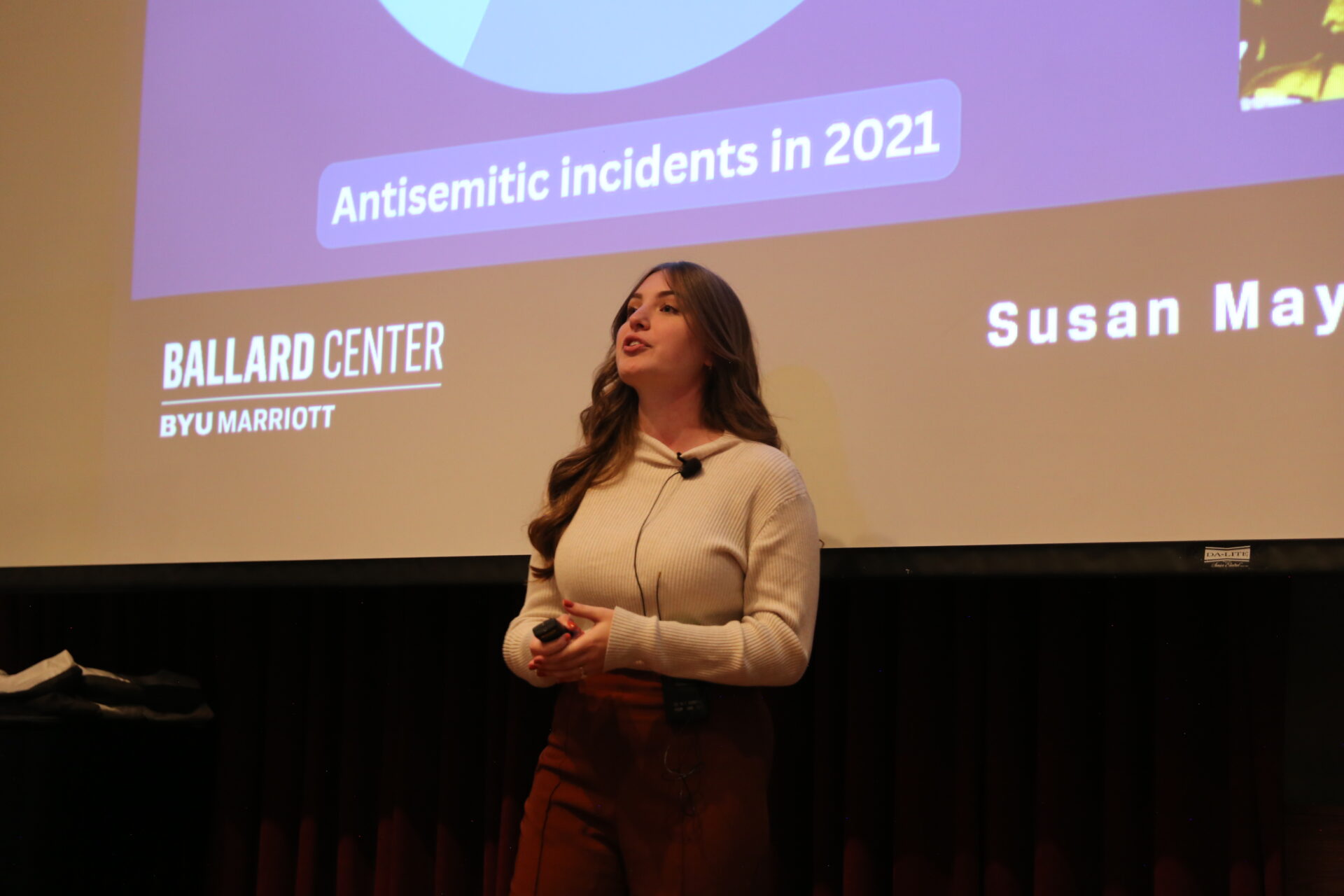
Watts emphasized education and engagement with Jewish communities as ways to decrease antisemitism.
The final speaker, Sydney Livingston, presented about mass shootings in the U.S. Media coverage of shootings can inspire new perpetrators to commit mass shootings, according to Livingston. Shootings impact public health — both physical and mental — and the economy.
Livingston recommended bans on certain types of firearms, stricter requirements for purchasing firearms and more education about this issue.
After the presentations, audience members voted for their favorite, and judges collaborated to determine the placing of the finalists. Christensen said the Ballard Center chose people involved with local and global social impact organizations to judge the presentations.
According to Christensen, the audience vote was worth 20% of the final score, with the choice of each of the four judges counting as 20%, respectively. All students received a financial award for participating in the summit, with fifth place receiving $100 and first place receiving $1,500.
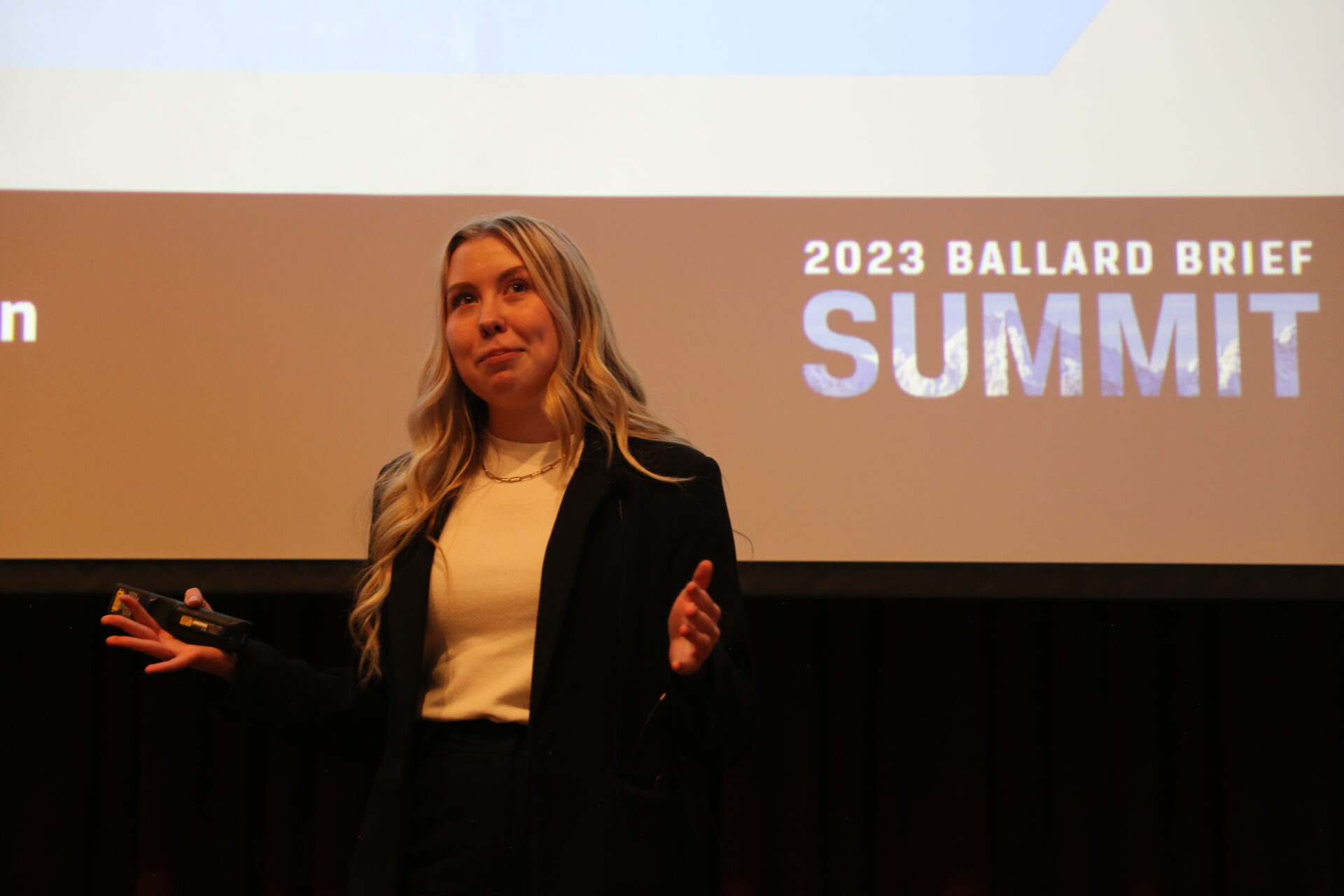
Minor won first place, with Chugg in second place, Livingston in third, Watts in fourth and Thompson in fifth.
Minor shared she felt grateful and honored to have won.
“What made the moment even more special for me was that some of my favorite people from Ghana, who are working on the foregrounds of this issue, came to support me,” Minor said.
Minor said she plans to travel back to Ghana to continue helping organizations supporting children in need.
Nathan Bain, Minor’s friend, shared Minor was rewarded for being informed and passionate about her social issue. He said attending the event brought issues to his awareness, and the passion of speakers was contagious.
“I definitely feel pushed from all the speakers to get involved in each of their issues,” Bain said.
Watts said she was happy to share her research at the event, even though she does not love public speaking.
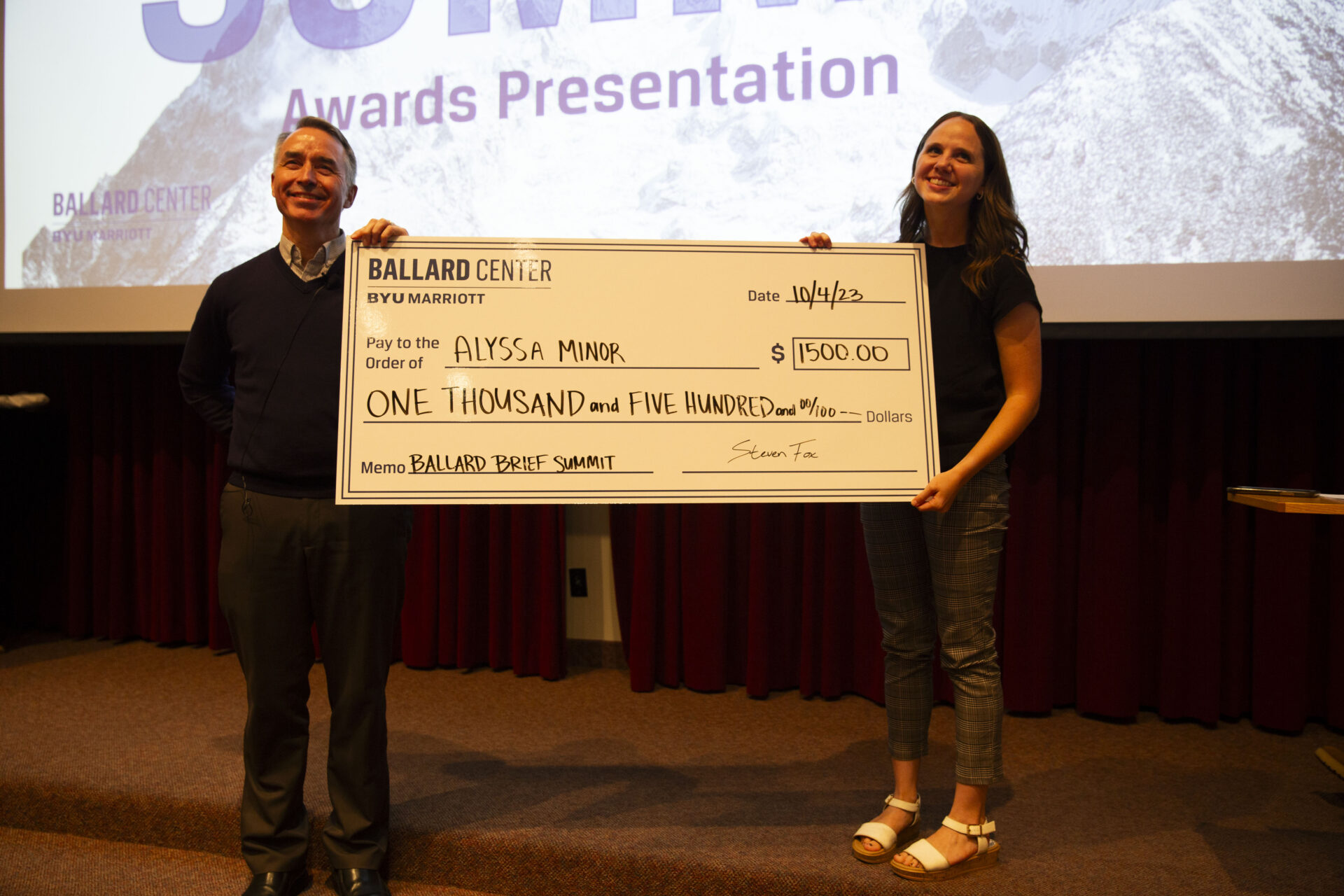
“I prepared a lot and I’m relieved now that the summit went well, everybody did a great job. And now I can relax,” Watts said.
Christensen was pleased with how the event went and the amount of people that came to show support.
“I just feel really grateful that those involved, cared so much, put the time in and got to showcase it to the world,” Christensen said.
The students’ Ballard Briefs can be read online at ballardbrief.byu.edu.




